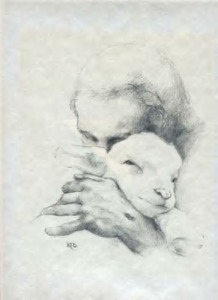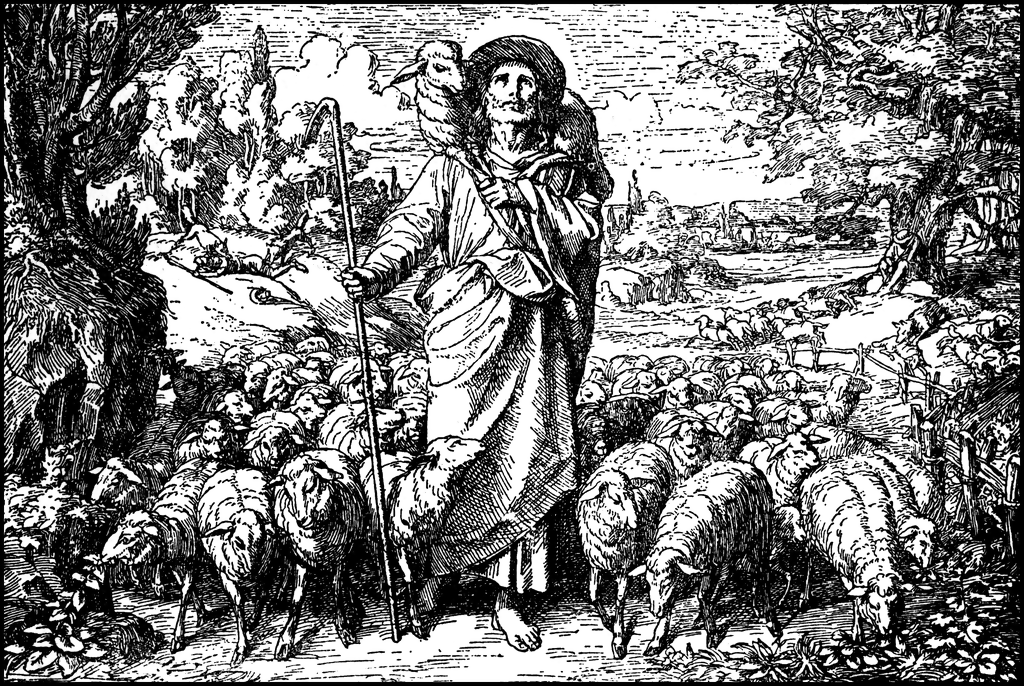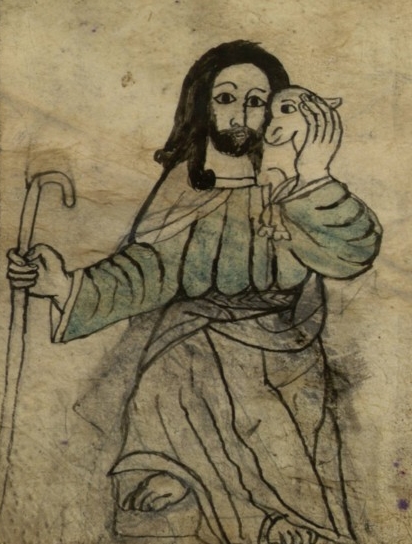“How Shall We Love?”

John 17:6-19 – May 12, 2024
Have you ever heard the saying that “Life is fragile: handle with prayer!” This is so true! Yet, some people might scoff, and say those words are too trite, or too simplistic, or, just don’t work. I feel really sad for people who think this way, because their lives or their circumstances might be sincerely sad or awkward or downright unpleasant.
If we look back at our Lord Jesus, and how He lived, and what His regular habits were, we can see that Jesus practiced regular prayer and meditation. Multiple times in several Gospels we can see our Lord Jesus slipping away to pray, or taking time in the early morning to go away by Himself to pray. He gathered others around Him when He prayed, too. I think Jesus would agree with this saying about prayer, trite though it may seem to be!
Our Gospel reading today comes from John chapter 17, at the end of that Upper Room Discourse, the section of John where Jesus and His disciples gather the night before He was crucified, to eat the Passover dinner. This chapter is an intimate look at prayer, where our Lord Jesus prays to His Heavenly Father. And most striking of all, Jesus prays for His followers. Not only the disciples, but also for us!
I love how straight forward commentator Karoline Lewis is. She says, “That upper room was filled with pain and abandonment. With betrayal and loss. With unsettled hearts and fearful souls. And Jesus ends it all with a prayer for his disciples. The section before this portion of the prayer is Jesus’ prayer for himself. But this segment is for his disciples.” [1]
Jesus has several ideas in these verses, where He talked about trouble and difficulty for His followers. Sadly, this is not new information for us. Plus, these verses contain some of the most powerful concepts about God’s love that are to be found in the whole Bible. Amazingly, Jesus talks about how much God His Heavenly Father loves Jesus, and reminds His followers that they are to love each other in the same way.
The words of Jesus to our God are written down in the whole of chapter 17. How intimate, how meaningful is that? I want to focus especially on verse 9. Jesus says, “I pray for them. I am not praying for the world, but for those you have given me, for they are yours.”
Jesus prays for His followers. Not just any old prayer, but a significant prayer, at a profound time of Jesus’s life. The night before His crucifixion, when He must have had a thousand and one things on His mind, Jesus takes the time to think of and to pray for His followers; His friends and disciples. How selfless, how thoughtful this is. And, how much like the Jesus we know and love!
One amazing thing about this prayer – this High Priestly Prayer of Jesus, is that Jesus not only prayed about the disciples He had at that time, those friends He loved so dearly. “Jesus is still loving and praying for us today – and so are our parents, grandparents, and church community. We are [all] covered in prayer just like a blanket.” [2]
When one of my children was still very small, he had a special blanket that meant a great deal to him. Being covered with that special blanket made him feel safe and secure. Does that sound comforting and heartening? Doesn’t it make you want to feel God’s love holding you (and me) securely, like a warm, fuzzy blanket? I’ve got great news for you! Jesus promises that to us, right here in John 17!
Today is Mother’s Day. Today is a day to take the time to think of beloved mothers (and, those who have acted as mothers).
In many, many cases throughout this country—and beyond, around the world—many caring, loving and nurturing women have mothered those under their care. In cases of religious nurture, caring mothers, grandmothers, aunties, sisters—and others who have stood in the place of these maternal figures—have prayed for their friends, relatives and loved ones, too.
Whether nearby or far away, prayer makes that intimate connection, that bond between friends, relatives, and loved ones. It does not matter whether the pray-er and the ones prayed for are next door, in the next town, or separated by miles, mountains or oceans. Jesus was making that intimate, loving connection too, through His prayer for us in John 17.
“This [prayer] is not the Lord’s Prayer. This is not Jesus teaching his disciples how to pray. This is not only a personal prayer or privatized piety. After betrayal and predicted denial, after concerned questions and foretold rejection, the disciples do not need another lesson, another miracle, another example. They need exactly what Jesus does, because Jesus knows — for Jesus to pray for them.” [3]
Just as a devout mother or grandma prays for her loved ones, just as Jesus seeks a intimate and loving connection with His friends and followers, so we can seek to have that deep connection with one another.
Dr. David Lose invites all of us to hear these words of Jesus addressed to each of us today. To imagine – really, to know – that Jesus was praying for us all those years ago and continues to care for us, support us, and love and connect with us today. Please take a moment to think about where we need to be more whole. Where do we need to have more peace in our lives? Where do we need more love? And then, imagine that Jesus is actively, intimately praying for each of you. And, indeed, for all of us. [4]
Jesus is caring for us, you know. Jesus loves each of us that much.
Plus, Jesus invites us to love one another that much, too, in this, His most intimate prayer. Take the words of Jesus seriously. Go and love others, just as Jesus loves us. Alleluia, amen.
(Suggestion: visit me at my other blogs: matterofprayer: A Year of Everyday Prayers. and A Year of Being Kind . Thanks!
[1] https://www.workingpreacher.org/dear-working-preacher/prayers-needed
[2] https://www.stewardshipoflife.org/2018/05/the-power-of-prayer/
[3] https://www.workingpreacher.org/dear-working-preacher/prayers-needed
[4] http://www.workingpreacher.org/craft.aspx?post=2566 David Lose The Power of Being Prayed For








